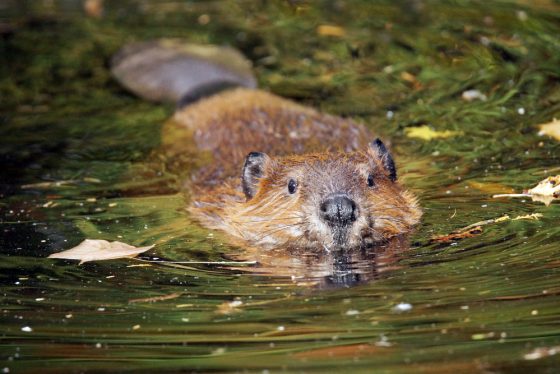30 years after their re-introduction to NL, beavers are back in Twente


Beavers are making a comeback in Twente, in the east of the province of Overijssel, local paper Tubantia reports.
Ecologists have found beaver droppings along the Schipbeek, a tributary of the river IJssel. ‘We don’t know how he did it but the beaver has crossed the Twentekanaal. That means we are doing something right,’ ecologists and photographer Michiel Schaap told the paper.
Beaver coordinator Robert Pater, who is part of a group of volunteers who monitor beavers and otters, said the province is now home to 60 beavers of which 90% live along the IJssel.
‘The reason it’s here is because smaller rivers are increasingly allowed to follow their natural course and we are creating more attractive areas for beavers. And that is great because the beaver belongs in the Dutch landscape.’
Beavers (Castor fiber) were hunted for their fur and musk and became extinct in the Netherlands in the early 19th century. They were successfully re-introduced in the Biesbosch nature reserve in 1988.
Although beavers have a reputation for causing damage, Schaap said the animal is good for biodiversity. ‘They gnaw away at trees in inaccessible places and that means the sunlight can reach the bottom of the river and promote plant growth.’
Beavers are also good for tourism. The number of visitors to sites where beavers have been sighted is going up. ‘Beavers are very impressive animals, they can grow up to 1.20 metres in length in some cases, and children especially like them. That helps create future ecologists,’ Schaap said.
Pater said the provincial water board is justly afraid of beavers undermining dikes but this can be solved by making the key area less attractive to beavers.
Water board spokesman Arjen Heugens said beavers are welcome but that should they damage dikes the water board would have to take measures. ‘There is no settled population as yet but we have seen signs of beavers around our waters,’ he said.
Thank you for donating to DutchNews.nl.
We could not provide the Dutch News service, and keep it free of charge, without the generous support of our readers. Your donations allow us to report on issues you tell us matter, and provide you with a summary of the most important Dutch news each day.
Make a donation